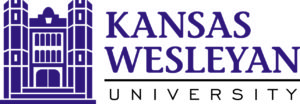
Becoming an Emergency Manager at KWU
Kansas Wesleyan University appears in our ranking of the 50 Most Affordable Schools for an Emergency Management Degree.
About Kansas Wesleyan University
Kansas Wesleyan University originated in 1883 when the Methodist Episcopal Church’s Conference of Northwest Kansas met to discuss a higher learning institution. On September 15, 1886, President William F. Swahlen opened Kansas Wesleyan’s doors to an inaugural class of 142 coeds. In 1886, KWU students notably founded the Athenaeum Society for intellectual training. In 1890, the Wesleyan Advance started its monthly 16-page publications. In 1908, KWU invested $60,000 in building a Walnut Street building for the new Business College. In April 1909, Kansas Wesleyan organized the University Methodist Church for chapel services. Three years later, today’s 63,750-volume Memorial Library was first erected. By 1933, KWU bestowed an honorary Doctor of Science to its most renowned alumnus, Glenn Martin. On March 28, 1958, Kansas Wesleyan University was approved for regional accreditation.
Endowed for $40 million, Kansas Wesleyan University now employs 84 faculty teaching 791 Coyotes from 15 countries online or at the 28-acre Smoky Hills campus in Salina with 35+ clubs like Forensics and DECA for 54.3 percent retention. In 2018, KWU received the Salina Journal Best of the Best Readers’ Choice Award. That same year, the Salina Family YMCA gave Kansas Wesleyan its first Community Pillar Award. The “College of Distinction” won the 2018 KCAC Team of Character Award too. The U.S. News & World Report ranked Kansas Wesleyan University the 52nd best Midwest school. On Niche, KWU boasts America’s 233rd best dorms, 387th most diversity, and 442nd hardest admission. College Factual placed KWU 46th among the most popular homeland security programs. Washington Monthly proclaimed Kansas Wesleyan the 227th best baccalaureate institution.
Kansas Wesleyan University Accreditation Details
On June 19, 2017, the Higher Learning Commission on North Central Association (HLC-NCA) Institutional Actions Council sent a formal notification letter to Kansas Wesleyan University that reaffirmed the Level III accreditation through 2026-27 under its 19th president, Dr. Matthew R. Thompson. Located 685 miles northeast via Interstate 55 in Chicago, Illinois, this humongous 19-state Heartland Region accreditor is authorized by the U.S. Department of Education to check KWU’s one associate, 44 bachelor’s, and one master’s offerings. Particularly, the Center of Public Policy & Safety is approved by the Federal Emergency Management Agency (FEMA) Higher Education Program.
Kansas Wesleyan University Application Requirements
Getting into Kansas Wesleyan University is classified “moderately difficult” by Peterson’s since only 303 of the 860 Fall 2017 applicants were triumphant for 35 percent acceptance. First-year Coyotes howling at the B.A. in Emergency Management must have culminated an enriching, college-prep secondary curriculum. The Kansas State Board of Education allows the GED equivalent if graded 150 or higher. Freshmen need minimum cumulative GPAs of 2.5, though the average is 3.33. Undergrads must achieve at least 18 ACT or 940 SAT scores. If taken before March 2016, SAT marks above 860 would qualify. The Honors Program mandates a minimum 25 ACT score and 3.5 GPA. Eligible transfers, including 2+2 Barton Community College students, must present post-secondary GPAs over 2.5. Kansas Wesleyan accepts 24-75 transfer credits from accredited institutions. Foreign learners from non-English countries also need 500 TOEFL pBT, 61 TOEFL iBT, 6.0 IELTS, or better scores.
Kansas Wesleyan University conveniently has rolling undergrad admission until August 1st for Fall or December 1st for Spring starts. The priority deadline for financial aid consideration is March 15th. International students must apply to the B.A. in Emergency Management by July 1st or November 1st. The Eisenhower Scholars Program closes on January 16th. Accordingly, submit the KWU Application online with a $20 non-refundable fee by credit or debit card. Send official transcripts from each institution to 100 East Claflin Avenue in Salina, KS 67401. Select SAT/TOEFL code 6337 or ACT code 1434 for direct testing results. Once accepted, students must provide a $200 enrollment fee and health record. Only non-U.S. residents must attach a confirmation of financial resources form. Inquire further by contacting (785) 827-5541 or admissions@kwu.edu.
Tuition and Financial Aid
For 2019-20, Kansas Wesleyan University is charging full-time B.A. in Emergency Management majors $14,750 per term or $29,500 annually. Studying part-time incurs $300 per credit. Half-time enrollment costs $3,000 and three-fourths enrollment costs $5,600 each term. Reduced tuition of $150 per credit is available for pre-freshmen and senior citizens. Overload credits over 18 bill $140 apiece. Residing at the Salina campus’ dorms like Pfeiffer Hall adds $9,800 for yearly room and board. KWU budgets $600 for textbooks and $1,000 for miscellaneous expenses each semester. Annual bachelor’s attendance equals about $42,200 on-site or $35,260 if commuting. Online B.A. students simply spend $300 per credit or $36,000 in total.
According to the NCES College Navigator, the Student Financial Planning Office on Pioneer Hall’s 2nd Floor connects 96 percent of full-time KWU Coyotes to tuition aid averaging $16,324 each for $10.91 million combined. Institutional programs include the Dean’s Scholarship, Eisenhower Scholarship, University Scholarship, Promise Scholarship, Power Award, Izenda Scholarship, Florence Evelyn Westhoff Scholarship, Hale Family Promise Scholarship, Jody Frederickson Scholarship, Dane Hansen Foundation Scholarship, and Hagan Foundation Scholarship. The Presidential Scholarship gifts $12,000 annually to freshmen or transfers with minimum 3.5 GPAs. From November 1st to February 15th, students apply for Greater Salina Community Foundation funds like the Booker T. Washington Scholarship, First Bank Kansas Scholarship, Jeanne & George Frisbie Scholarship, and Erik Erickson Memorial Scholarship. Federal resources, such as the Pell Grant or Iraq and Afghanistan Service Grant, require FAFSA applications coded 001929. The Kansas Comprehensive Grant also provides up to $3,000 each year for in-state residents.
Learn more about Kansas Wesleyan University at the Department of Emergency Management website.